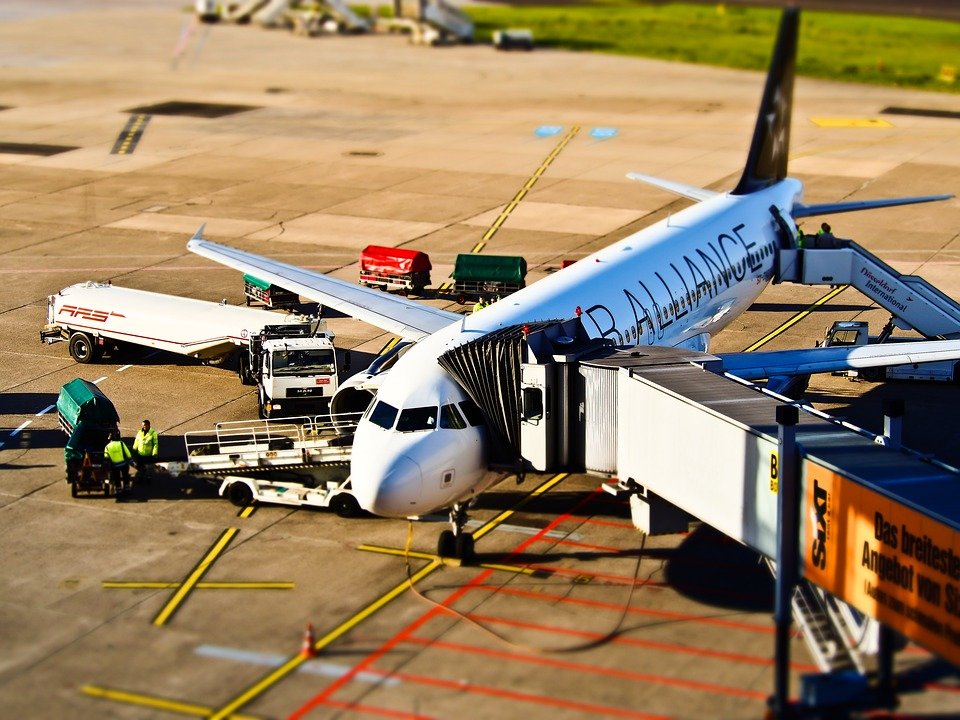How to Completely Understand Your Teaching Abroad Contract
Read on to find out the ways on how you can do your research to make sure you're getting a good deal with your teaching abroad contract!

I can't tell you how many times I've had people ask me to take a look at their teaching contract. Contracts are extremely confusing, and if you don't know what to look for, it can be impossible to tell if you're getting a good deal.
For most first-time teachers, asking an employer to explain a contact can seem extremely daunting.
What exactly does this 3-month probation period mean? When am I allowed to start taking my vacation days? When exactly am I paid back for my flight??
Asking these questions to a potential employer or HR director can seem awkward, rude, or too direct.
Well, today we're going to go over the most important sections of your teaching contract and how to make sense of them. I'll teach you what to look for to ensure you don't get scammed, and teach you how to do your research to make sure you're getting a good deal. This way, you'll know exactly which questions to ask so you don't end up repeating my teach abroad mistakes!
1. Understanding Your Salary

While looking for jobs teaching abroad, you should have a general idea of the average salary for your country. Not sure? Don't worry, we already did that for you!
Before or After Tax? Housing Stipend?
When comparing salaries across jobs, it's important to know if your salary is before or after taxes. If your salary is after tax, be sure to ask your employer what your salary might look like after the taxes are taken out. This will give you a general idea of what your take-home salary will be.
Many companies also provide a free apartment or housing stipend. Be sure to factor the cost of housing (or lack thereof) into your salary before making any decisions! (More on this later.)
What's Your Payday?
You'll also want to ask when you'll be paid each month -- and ensure this is noted in your contract. I once worked for a school that never paid us on time. However, my contract stated that I was supposed to be paid on the 10th of each month. Once I brought this to the attention of my principal, I was paid on time while the local teachers were still paid up to a week or two late.
Knowing your payday is also important for budgeting how much money you will need when you first start out. I began working my current job on the 1st of September, however, payday is on the 15th of the following month. This means that I had to work a month and a half with no pay, which I wasn't prepared to do. I even ended up having to take a small loan from the company to survive! Awkward.
2. Free Apartment or Housing Stipend

In many countries, especially in Asia and the Middle East, it's very common to receive free housing as part of your contract. Yes, it's free!
Free Apartment Provided
If you're getting a free apartment as part of your contract, be sure to ask about the details. Will you have roommates? Will you have to live on campus? Will the school choose an apartment for you, or do you get a choice?
Your free apartment may be lovely, or it might also be a shoddy makeshift room in your school building that the administration slapped together a few weeks before you arrived. I'll let you guess what type of apartment I ended up with my first year teaching abroad... Be sure to ask for pictures if possible!
While living in your school can be super convenient, it can also be annoying if you have specific rules or a curfew. Be sure to ask about all of these things before you sign your contract.
Finally, be sure to ask if amenities are covered, and what items will be provided in the apartment. While some schools cover heat, water, and electricity, other employers require that you cover these costs yourself. Some schools may provide bedding and cooking supplies, while others will not.
Housing Stipend
In lieu of a free apartment, many employers will provide a housing stipend. This is great because you'll have complete control over where you end up living. However, it's also a pain because you have to find the apartment yourself, and your stipend may not completely cover your rent.
Be sure to look up average apartment prices in your city before you bank on your housing stipend covering your monthly rent payments. Many jobs in Beijing where I currently live, give a housing stipend of around 3,000 RMB ($440 USD) per month, which is only enough to cover a room in a shared apartment.
If you receive a housing stipend, be sure to ask if your company will help you find a place to live. Ideally, they should hire an agent or help you themselves. You'll also need to ask if you will have to pay the deposit yourself, or whether it will be covered by the school.
Finally, you'll need to know how you will be getting your housing stipend. Will it be a part of your salary, will you get it monthly in a separate payment, or will your school pay the landlord directly? These are all important questions to ask!
3. Vacation Days

While most contracts state the government vacation days along with your holiday allowance, it's important to ask a few big questions before you take a job. News Flash: Some employers may give you vacation, but won't actually allow you to take time off to use it, especially not during the busy season.
Is it possible for you to return home for Christmas? Are you allowed to take all of your days at once, or is there a limit on how long you can be gone from the office? Are your vacation days assigned by your boss, or do you get a choice?
It may seem awkward to ask about vacation before you've even started, but trust me, this is something you need to know, especially if you want to see your family during the holidays, or make it home for your best friend's wedding.
4. Flight Reimbursement

Most ESL jobs, especially those in Asia, will pay for your flight to and from the country where you will be working. However, it's important to know when and how you will actually be reimbursed.
Will the company pay for the flight themselves, or will they reimburse you later? If you will be reimbursed, when will they pay you back? I worked for a school that didn't reimburse me until I had been working there for SIX MONTHS. Apparently, they had forgotten to factor that $600 into their yearly budget. Whoops.
Be sure to also ask if your flight applies to any country in the world, or is specific to the location they hired you from. My friend recently took a job in Seoul after finishing up a contract in Busan, South Korea. Once his contract was finished and he wanted his free flight home to Canada, the school argued that since he was hired from within South Korea, they would only fly him back to Busan, not Toronto!
To make sure this doesn't happen to you, check if there's an allowance limit on your flight or any sort of restrictions on where they will fly you back to after the contract ends.
5. Can You Quit?

The last thing on my mind when I signed my first teaching contract was whether or not I could quit. I figured that no matter what, I'd finish our my teaching contract, so when I saw a small clause about owing the school money if I left early, I paid it no attention.
Do not do this!
I later realized that that small clause stated that I could owe my school up to $8,000 USD if I decided to leave my contract early. That was my salary for the entire year!
Be sure to check your company's policy on ending your contract early before you sign anything. Do you have a non-compete clause preventing you from working in the same industry in that country? Do you have to give three month's notice if you want to leave early? Can they sue you for a ridiculous amount of money?
While it may seem like these clauses are a scam, they're meant to protect the company from teachers getting their free flights and visas and leaving for a higher-paying job. However, you also need to protect yourself too. What happens if your school doesn't treat you fairly and you're miserable? You need the option to leave early if you're unhappy.
Ideally, you'd be allowed to quit without doing a "midnight run", leaving in the dead of night. Hopefully, you have the possibility of being able to find a job elsewhere in the country without getting sued for your entire salary.
Check your contract for non-compete clauses, and be sure that you can protect yourself if something goes wrong.
It's Better To Be Prepared
While this conversation about contracts might have seemed a bit stressful, it's better to be safe than sorry. I've made many mistakes when it comes to not reading contracts that have led to major issues during my teach abroad experience: running out of money, not getting reimbursed for six months, and not being able to leave if I wanted to. By detailing all of these important points, we hope to equip you with the tools to avoid these issues.
Overall, contracts are never fun, but they're necessary. They keep you safe and secure in your position abroad and protect you if your employer treats you unfairly. So when you get your contract, don't just sign! Check it thoroughly to ensure you get the deal you deserve.
